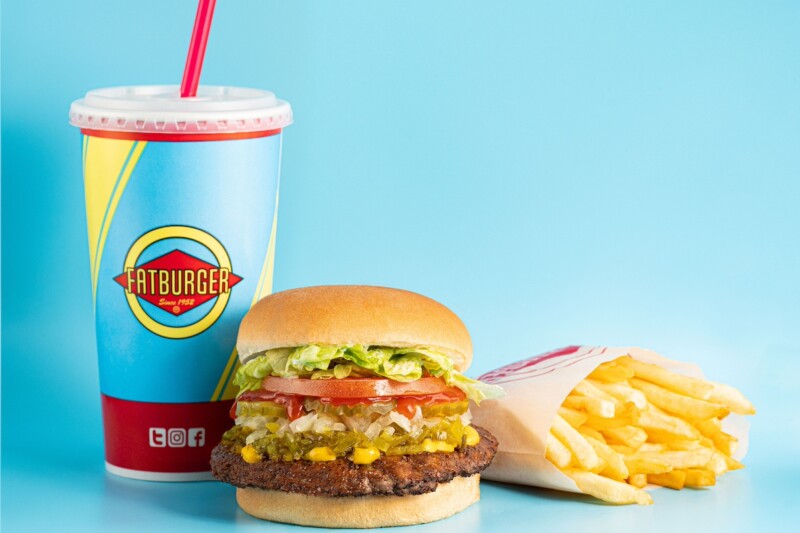Management Excellence Award: Chain and Commercial Operator
2011 Sales: $345 million
No. of Employees: 18,000 restaurant; fewer than 50 corporate
No. of Units: 127 in 23 states
Menu Sampler: Roasted pear salad, fish tacos, baby back ribs, ½-lb. burgers, hand-dipped milkshakes
Company Motto: “An honest dining experience.”
Cheddar’s Casual Cafe management group operates a lean machine. The full-service, casual-dining restaurant chain oversees 127 units from its Irving, Texas, support center run by fewer than 50 employees. The company has steadily increased business the past 33 years without advertising, relying on the “if you build it, they will come” philosophy. In 2010, Technomic, Inc. rated the company the sixth fastest growing U.S. chain with sales over $200 million.
Recognizing success, FER named Cheddar’s the first-ever recipient of the magazine’s Management Excellence Award—Chain and Commercial Operators (fewer than 250 units). The award honors chains that, among other qualities, consistently deliver on commitments to suppliers and channel partners; provide clear, concise direction in communications with manufacturers, kitchen designers, operations and purchasing personnel and engineers; and demonstrate a high level of ethical behavior in all purchasing decisions.
The Cheddar’s group opened its first restaurant in Arlington, Texas, in 1979. Founders Aubrey Good and Doug Rogers envisioned an inviting neighborhood restaurant that offered handmade, high-quality food at a reasonable price.
Rick Payne, sr. v.p. of administration and purchasing, Joe Mutti, sr. v.p. of development, Ryan Hatfield, director of development, and Robert Pesch, director of culinary research and development are the corporate team who draw up each of the 8,000-sq.-ft. restaurants, which typically serve 7,500 visitors a week.
“We’re a family business that has grown up to be a significantly large corporation,” Payne says. “We grow about 20% a year. We’re always opening new restaurants and always needing more people. I think our normal growth is exciting.”
Cheddar’s restaurants cost roughly $4 million each. The group works together to design efficient buildings, which often feature the same floor plans and kitchens but with some unique elements.
Once a restaurant opens, the Cheddar’s team relies on word-of-mouth to spread the news. “We do it differently and we’re OK with that,” Payne says. “We put all our advertising on the plate.”
Payne has served as the sole member of the Cheddar’s purchasing group for the past 20 years. He’s worked in the foodservice industry for 35 years. If a vendor or partner takes care of Cheddar’s, he will take care of them.
“We have a lot of long-term relationships with vendors and partners who provide products and services to our company,” he says. “That’s very important to us.”
When it comes to kitchen equipment, Payne always looks for the latest advancements that will help move guests through the restaurants more efficiently and offer them a better experience.
Overall, he says, the company works hard to provide as much value to the customers as possible. For example, the company runs a program called Every Dollar Counts that encourages employees to come up with ideas that increase value to the customers and save the company money.
“We don’t want to waste a dollar,” Payne says. “If a change costs a dollar that affects the customer, we’re not going to make it. But if there’s something we can do that makes things better for the customer and saves us money, that’s a win-win.” For example, one employee explored alternate vendors for Cheddar’s drink glass. “Switching from one vendor to another for the same glass saved us $47,000.”
Each restaurant employs about 150 individuals. When hiring managers and servers, Cheddar’s staff looks for qualities such as honesty, integrity and a can-do attitude. Applicants complete tests to ensure they have the right personality to work in the restaurant. Once hired, employees participate in training programs.
“The biggest challenge is always people—hiring the right people to run the restaurants,” Payne says. He notes that the restaurants have a high turnover rate just as many other chains. But some managers have worked for the company for more than 25 years. In fact, his two sons and daughter-in-law are general managers.
“It’s a family atmosphere,” he says. “We just try to make everybody feel as good as we can.”
The company empowers managers at each location to find ways to get involved in the community. In the past, restaurants employees have served food at local charity events or donated their time. In 2011, when tornadoes struck Joplin, Mo., the local Cheddar’s team handed out sandwiches to area victims.
Moving forward, one plan the development group has in the works includes a menu program with seven items with fewer than 700 calories. Payne says customers are demanding more allergen-free and nutritional information than ever before.
“We’re looking at how to make our food more nutritional every day,” he says.
Cheddar’s started out more than three decades ago with a simple game plan—offer homemade-quality food, value pricing, a polished atmosphere and real relationships. Today, the team still cooks from scratch and keeps prices reasonable. “We just grew the business,” Payne says.
2011 Sales: $345 million
No. of Employees: 18,000 restaurant; fewer than 50 corporate
No. of Units: 127 in 23 states
Menu Sampler: Roasted pear salad, fish tacos, baby back ribs, ½-lb. burgers, hand-dipped milkshakes
Company Motto: "An honest dining experience."
Cheddar's Casual Cafe management group operates a lean machine. The full-service, casual-dining restaurant chain oversees 127 units from its Irving, Texas, support center run by fewer than 50 employees. The company has steadily increased business the past 33 years without advertising, relying on the "if you build it, they will come" philosophy. In 2010, Technomic, Inc. rated the company the sixth fastest growing U.S. chain with sales over $200 million.
Recognizing success, FER named Cheddar's the first-ever recipient of the magazine's Management Excellence Award—Chain and Commercial Operators (fewer than 250 units). The award honors chains that, among other qualities, consistently deliver on commitments to suppliers and channel partners; provide clear, concise direction in communications with manufacturers, kitchen designers, operations and purchasing personnel and engineers; and demonstrate a high level of ethical behavior in all purchasing decisions.
The Cheddar's group opened its first restaurant in Arlington, Texas, in 1979. Founders Aubrey Good and Doug Rogers envisioned an inviting neighborhood restaurant that offered handmade, high-quality food at a reasonable price.
Rick Payne, sr. v.p. of administration and purchasing, Joe Mutti, sr. v.p. of development, Ryan Hatfield, director of development, and Robert Pesch, director of culinary research and development are the corporate team who draw up each of the 8,000-sq.-ft. restaurants, which typically serve 7,500 visitors a week.
"We're a family business that has grown up to be a significantly large corporation," Payne says. "We grow about 20% a year. We're always opening new restaurants and always needing more people. I think our normal growth is exciting."
Cheddar's restaurants cost roughly $4 million each. The group works together to design efficient buildings, which often feature the same floor plans and kitchens but with some unique elements.
Once a restaurant opens, the Cheddar's team relies on word-of-mouth to spread the news. "We do it differently and we're OK with that," Payne says. "We put all our advertising on the plate."
Payne has served as the sole member of the Cheddar's purchasing group for the past 20 years. He's worked in the foodservice industry for 35 years. If a vendor or partner takes care of Cheddar's, he will take care of them.
"We have a lot of long-term relationships with vendors and partners who provide products and services to our company," he says. "That's very important to us."
When it comes to kitchen equipment, Payne always looks for the latest advancements that will help move guests through the restaurants more efficiently and offer them a better experience.
Overall, he says, the company works hard to provide as much value to the customers as possible. For example, the company runs a program called Every Dollar Counts that encourages employees to come up with ideas that increase value to the customers and save the company money.
"We don't want to waste a dollar," Payne says. "If a change costs a dollar that affects the customer, we're not going to make it. But if there's something we can do that makes things better for the customer and saves us money, that's a win-win." For example, one employee explored alternate vendors for Cheddar's drink glass. "Switching from one vendor to another for the same glass saved us $47,000."
Each restaurant employs about 150 individuals. When hiring managers and servers, Cheddar's staff looks for qualities such as honesty, integrity and a can-do attitude. Applicants complete tests to ensure they have the right personality to work in the restaurant. Once hired, employees participate in training programs.
"The biggest challenge is always people—hiring the right people to run the restaurants," Payne says. He notes that the restaurants have a high turnover rate just as many other chains. But some managers have worked for the company for more than 25 years. In fact, his two sons and daughter-in-law are general managers.
"It's a family atmosphere," he says. "We just try to make everybody feel as good as we can."
The company empowers managers at each location to find ways to get involved in the community. In the past, restaurants employees have served food at local charity events or donated their time. In 2011, when tornadoes struck Joplin, Mo., the local Cheddar's team handed out sandwiches to area victims.
Moving forward, one plan the development group has in the works includes a menu program with seven items with fewer than 700 calories. Payne says customers are demanding more allergen-free and nutritional information than ever before.
"We're looking at how to make our food more nutritional every day," he says.
Cheddar's started out more than three decades ago with a simple game plan—offer homemade-quality food, value pricing, a polished atmosphere and real relationships. Today, the team still cooks from scratch and keeps prices reasonable. "We just grew the business," Payne says.
RELATED CONTENT
- Advertisement -
- Advertisement -
- Advertisement -
TRENDING NOW
- Advertisement -
- Advertisement -
- Advertisement -


